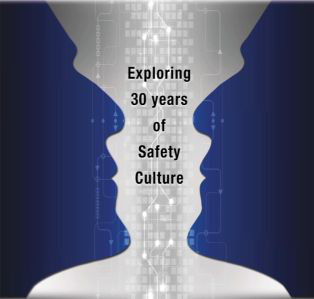Speaker
Synopsis
This paper presents an on-going research project Management principles and safety culture in complex projects (MAPS), supported by the Finnish Research Programme on Nuclear Power Plant Safety 2015-2018. The project aims at enhancing safety culture and nuclear safety by supporting high quality execution of complex projects in the nuclear industry.
Safety-critical industries are facing new challenges, related to increased outsourcing and complexity in technology, work tasks and organizational structures (Milch and Laumann, 2016). In the nuclear industry, new build projects, as well as modernization projects are temporary undertakings often carried out by networks of companies. Some companies may have little experience in the nuclear industry practices or consideration of specific national regulatory requirements. In large multinational subcontractor networks, the challenge for assuring nuclear safety arises partly from the need to ensure that safety and quality requirements are adequately understood and fulfilled by each partner. Deficient project management practices and unsatisfactory nuclear safety culture in project networks have been recognized as contributing factors to these challenges (INPO, 2010). Prior evidence indicated that many recent major projects have experienced schedule, quality and financial challenges both in the nuclear industry (STUK, 2011) and in the non-nuclear domain (Ahola et al., 2014; Brady and Davies, 2010).
Since project delays and quality issues have been perceived mainly as economic problems, project management issues remain largely understudied in safety research. However, safety cannot be separated from other performance aspects if a systemic view is applied. Schedule and quality challenges may reflect deficiencies in coordination, knowledge and competence, distribution of roles and responsibilities or attitudes among the project participants. It is increasingly understood that the performance of the project network in all lifecycle phases has implications for the defence in depth. Recently, the Radiation and Nuclear Safety Authority in Finland (STUK) has issued new YVL guides, which specify requirements on project management and safety culture of suppliers and subcontractors (STUK, 2014). International nuclear institutions have also paid attention to safety culture in networks of organizations (e.g. INPO, 2010; Royal Academy of Engineering, 2011; IAEA 2012).
Culture has been predominantly studied in safety research as an intra-organizational phenomenon. Thus, it remains unclear how to apply safety culture models in large-scale project networks, consisting of multiple heterogeneous actors with somewhat conflicting objectives. Cultural approaches traditionally emphasize that creating a culture takes time and continuity, which does not reflect well the short time frames, high diversity and temporal dynamics typical for such projects. Each project partner brings own national and work cultural features and practices, which create a complex amalgam of cultural and sub-cultural influences on the overall project culture. Recently, Gotcheva and Oedewald (2015) summarized safety culture challenges in different lifecycle phases of large nuclear industry projects, and many of them relate to inter-organizational setups. Project governance deals with this inter-organizational space as it aims at aligning multiple diverse stakeholders’ interests to work together towards shared goals (Turner and Simister, 2001).
The current study utilizes mixed methods approach for understanding and enhancing safety culture in complex projects, focusing on management principles, cultural phenomena and simulation modelling. The need to integrate knowledge on safety culture and project governance to support safe and effective execution of complex nuclear projects is highlighted. The study advances the concept of safety culture and its applicability in project contexts by directing the attention to inter-organizational complexity in contemporary nuclear power industry.
| Country or International Agency | Finland |
|---|---|
| Type "YES" to confirm submission of required Forms A and B via the official channels | YES |

